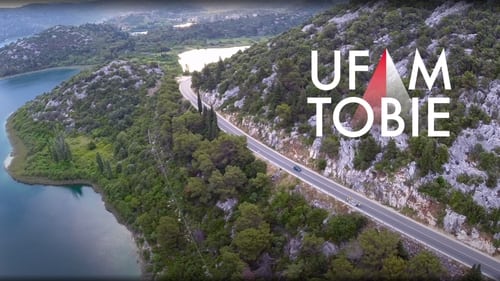
Editor
"Ufam Tobie" (Polish for "I Trust in You") is a film about God's mercy being poured out on the whole world because He is a loving God who seeks and wants to save every human being." From all My wounds, like from streams, mercy flows for souls, but the wound in My Heart is the fountain of unfathomable mercy. From this fountain spring all graces for souls. The flames of compassion burn Me. I desire greatly to pour them out upon souls. Speak to the whole world about My mercy." (Paragraph 1190 of the Diary of Saint Maria Faustina Kowalska)

Editor
Tatiana and her daughter Valentina live in the boring, provincial town of Zhigulyovsk 1000 kilometres south-east of Moscow. Valentina, 22, works in a vodka factory, while Tatiana, 50, is a bus conductor. Valentina, whose dream is to be a TV star in Moscow, has to overcome her own limitations as well as the irony and malice of her comrades at the vodka factory. Tatiana has to adapt her expectations to reality when her potential life partner turns out to be a part-time drunkard and a deadbeat. And on top of all this, both women have to think about Valentina’s son Danilo’s future. One of them has to give up the dream.

Editor
The film is a portrait of Jerzy Orłowski, an armless graphic artist. Impressionistic scenes present the protagonist in various situations: when he has to deal with everyday chores, when he jumps into water, skis and draws. Even the simplest activity requires struggle, resilience and outstanding fitness from him. Many takes are in slow motion, contemplating the smallest detail, which the director is so skilfully able to bring out.

Editor
A 'creative documentary' about an Austrian skier who was known during the 70s. Examined from a biographical / visual standpoint.

Editor
The last performance of the Grand Circus in the 1978 season. The camera meticulously captures important details, gestures, situations and emotions on the faces of circus artists.

Editor
Stylized with dramatic interiors and a distorted frame rate, this early documentary miniature from Szulkin depicts six sequences of solitary, repetitious labor.

Editor
A Polish folktale set in the Middle Ages, tells the story of a man, whose eyes, or the gaze of them, brings upon death.

Editor
The production is a poetic impression, its tone is mournful. The film shows the landscape of Vietnam two years after the end of the war. There is no commentary in the production, the image is accompanied by Mozart's composition.

Editor
Dialogue-free short detailing the daily tasks of a man and his wife.

Editor
A documentary about ice hockey from the point of view of the hockey puck.

Editor
"Our Lodz Friends" is a documentary portrait of three women of different ages working in textile factories in Łódź. In the deafening roar of machines, performing monotonous tasks, they talk about their everyday life and dreams.

Editor
The story of a farmer who's also a railway worker, and his family.

Editor
This museum does not collect the achievements of mankind. On the contrary, we can find there the evidence of its fall. The Auschwitz-Birkenau State Museum and its exhibits.

Editor
Short documentary depicting Arabian horses in the Polish countryside.

Editor
Documentary record of the first shift in Wujek coal mine in Silesia in 1962. We observe the course of events from the perspective of the mine's dispatcher at a modern desktop. We see one man, but the whole first shift crew is working.

Editor
A short documentary made in 1963 by Jerzy Bossak and Wacław Kaźmierczak featuring unique archival footage of the Jewish Ghetto of Warsaw. The Warsaw Ghetto (pol. “Getto Warszawskie” ) was the largest of all Jewish Ghettos in Nazi-occupied Europe during World War II. From there, about 254,000 Ghetto residents were sent to Treblinka extermination camp during the three months of summer 1942.











